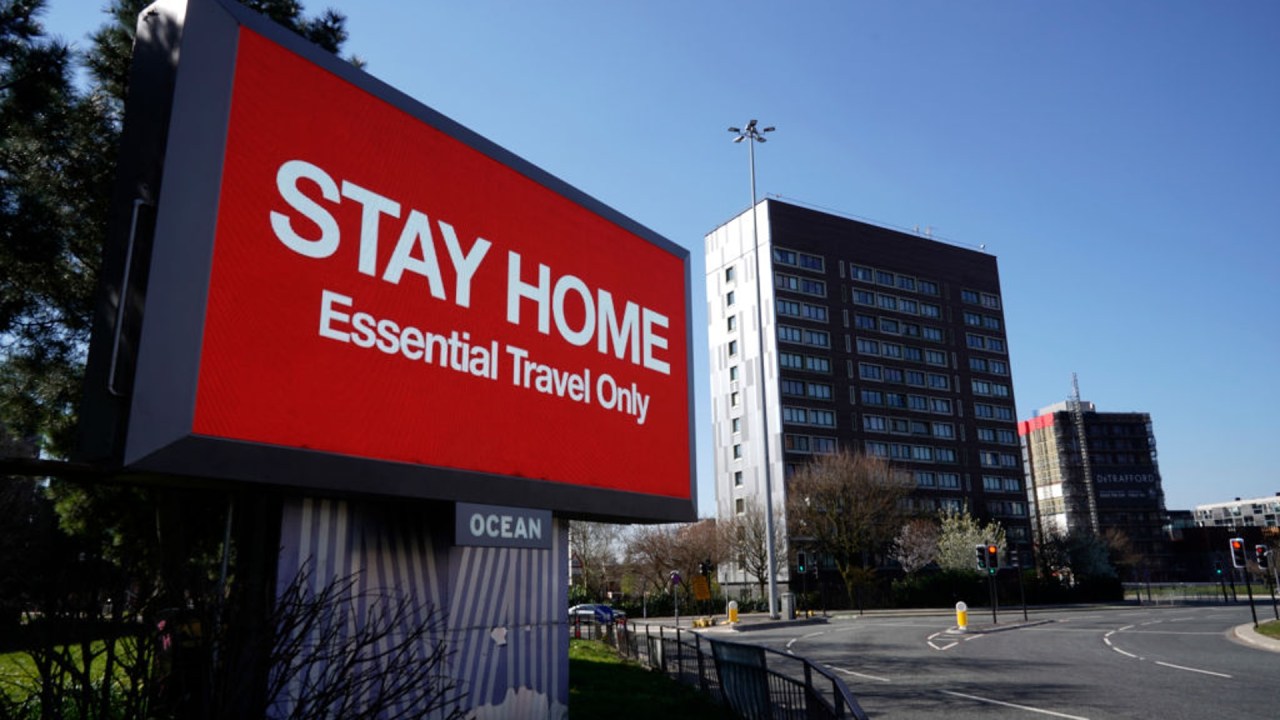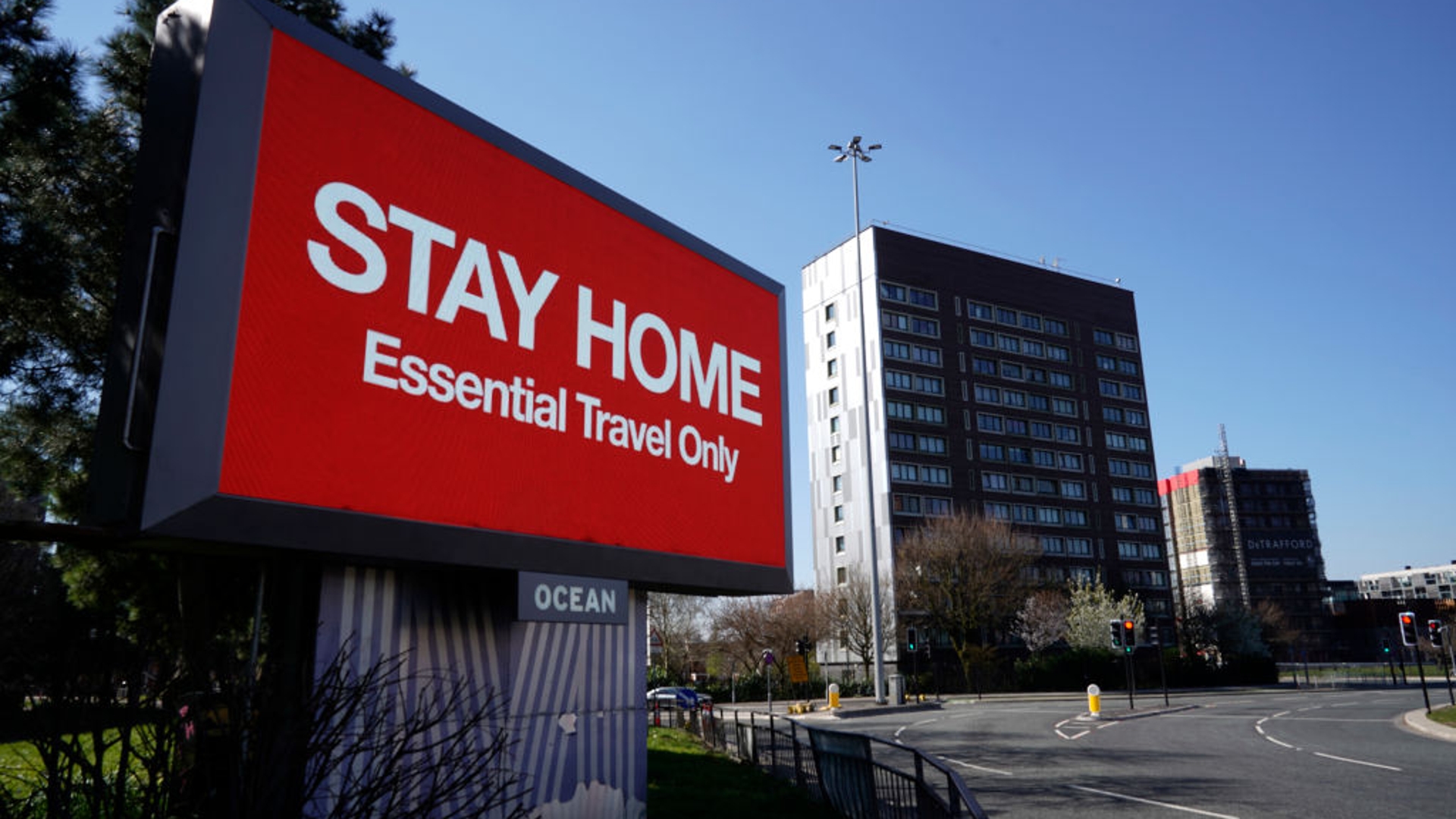The Spectator brings you the latest insight, news and research from the front line. Sign up here to receive this briefing daily by email, and stay abreast of developments both at home and abroad.
News and analysis
- Stockport and Wigan are expected to be put under stricter lockdown measures due to the rising number of Covid-19 cases, which would include no longer being able to mix with other households, apart from support bubbles.
- The UK is now on track for a £400 billion deficit in 2020-21. The government borrowed £35.9 billion in August – the highest amount borrowed in August since records began. UK debt has hit £2.024 trillion, surpassing the £2 trillion mark for the first time in history.
- University students across Scotland have been told to avoid pubs, restaurants and parties. They have also been ordered not to return home to visit their family. Some could face expulsion if they break the rules.
- Only nine countries remain on the UK’s ‘green list’ for travel, which exempts travellers from quarantine on their return. Iceland, Denmark, Slovakia and Curacao have been moved to the ‘red list’.
- More than 40 Conservative MPs are expected to back an amendment that would give MPs the power to debate and vote on any future Covid-19 restrictions in England. James Forsyth looks at the political Covid wars in detail in this week’s Spectator magazine.

Counting lives lost by the lockdown effect by Fraser Nelson
When Covid scenarios are drawn up, we tend to see only one side of the ledger: those who might die from the virus. Those figures are being updated. In the Daily Telegraph today, I report on how the figure of 500,000 dead is yet again being used by UK officials: not as a prediction but as an example of what a second wave of the virus could do if left undisturbed. The figure has since been questioned by those who observe how the virus started to fall after infecting barely a fifth of people in worst-hit cities. This is seen to suggest some pre-existing immunity in the population, perhaps through T cell response from earlier exposure to a milder coronavirus (ie. the common cold). But Chris Whitty, the chief medical officer, is unconvinced by the mass T cell immunity argument. He’s asking why, if it exists, there is no mass immunity to the common cold. Any such immunity, he suspects, could be short-lived. So that takes us back to only 7 per cent of us having had the virus, ergo 93 per cent being vulnerable – and 500,000 deaths defended as plausible. This is being used to focus the PM’s mind.
But this is not, and never has been, a question of lives vs livelihoods. Lockdown kills too: the recession it induces leads to unemployment, depression, chronic illness and death. ‘Stay at home’ advice deters people from seeking healthcare that they might regard as marginal: cancer check-ups, borderline A&E cases. No minister has ever mentioned how many excess deaths this could mean but I disclose that sums have been done by officials. Depressed A&E use: an extra 16,000 non-Covid dead. Early discharges and general Covid-induced hospital chaos: an extra 26,000 dead. Delays to surgery: 12,500 in the long run. Delays to cancer diagnosis and treatment: 1,500. And the economic collapse carries the biggest toll of all: an extra 18,000 dead in coming years. So: 74,000 souls in all, more than the current Covid-19 death toll. This may be a price worth paying, depending on the efficacy of lockdown – but even that is unmeasured.
With UK cases almost doubling in a week, the PM is left with few good options.
In pictures

In words
After what was a very severe contraction in the economy, we had seen over recent months some recovery, but obviously that recovery is fragile.
– Chief Secretary to the Treasury Stephen Barclay speaks to Sky News about the Treasury’s plans to replace the furlough scheme.
Boris’s Belgium problem by Ross Clark
If there is one country which has influenced the government’s toughening of Covid restrictions over the past fortnight, it is Belgium. It was Sophie Wilmès’s government which, faced with a resurgence of virus cases in late July, came up with the idea of placing a limit on the size of social gatherings – five rather than the six which Boris Johnson went on to impose in England six weeks later. It was the Belgian government, too, which came up with the idea of setting a curfew for pubs – 11 p.m. rather than the 10 p.m. which will come into effect in England, Scotland and Wales today. At the same time, Belgium extended the compulsion to wear a mask to most public places.
So did those measures do the trick in Belgium? Not quite. Daily confirmed cases rose from around 600 a day at the end of July to peak at just over 900 a day in the middle of August. They then fell back to around 400 a day at the beginning of September – before a further resurgence. On Wednesday, there were 1,834 new infections.
But in spite of rising cases, Belgium is now relaxing its restrictions rather than tightening them. This week it has announced that people will now be able to meet up in groups of ten rather than five. The quarantine period for people self-isolating will be reduced to seven from 14 days and masks will no longer have to be worn everywhere in public – though they will still be required on public transport, shops, cinemas and on some crowded streets. The new measures, according to the Belgian Prime Minister, have been formulated in the hope that they may prove bearable for the entire winter.
That is the problem with which Boris Johnson is now going to have to contend. The original lockdown was severe, but it was imposed initially only for three weeks. That is a lot different from facing six months of serious restrictions on daily life. As Belgium is realising – and other countries, too, may well come to appreciate – a policy of total suppression of Covid-19 may not be practical for much longer. We may have to go back to plan A, which was to slow the progression of the epidemic – to ‘squash the sombrero’, as Johnson put it – rather than try to stop it altogether.
Read more from Ross on Coffee House.
Global news
- Canadian Prime Minister Justin Trudeau has said that most of his country is now facing a second wave of the virus, warning that it is unlikely Canadians will be able to gather for Thanksgiving on 12 October, but may still have ‘a shot at Christmas together’.
- Another full lockdown will start in Israel today. According to the Jerusalem Post, it will be ‘more stringent than the one in March’ and is expected to include ‘shuttering synagogues, reducing the number of people who can protest, closing all nonessential businesses and markets, reducing public transportation routes and allowing citizens to gather only within their nuclear families.’
- Australia is considering bringing forward research money for universities to prevent an employment crisis in the sector. Universities are expected to lose out on $16 billion by 2023 due to the fall in international students.
- A pre-print study, partially funded by the UK Medical Research Council, suggests that the Brazilian city of Manaus may have reached ‘herd immunity’. Manaus was badly hit by the Covid crisis earlier in the year, after the ‘city of over two million people had 4.5 times as many deaths as expected for that time of year’.
- Face masks are no longer mandatory on New Zealand public transport, apart from in Auckland, where the virus broke out again in August.
- The number of people who have died from Covid-19 in Mexico has risen by 490 in the past 24 hours, taking the total death toll to 75,439.
Research: Stated vs revealed preference
A pre-study from researchers at King’s College London and UCL finds that only 11 per cent of people were adhering to quarantine in the first month of August, after being contacted by NHS test and trace.
Adherence to quarantine after being told by NHS contact tracing service to self-isolate

Our latest podcast
Coronomics
- Royal accounts could suffer a £35 million shortfall, as the numbers of people visiting Buckingham Palace and Windsor Castle have plummeted.
- Car manufacturing in the UK fell by 44 per cent in August compared with the same month last year. With Covid-19 restrictions increasing in the UK, the industry is concerned about falling demand.
- Online retailers are preparing for a surge in demand around Christmas, as a representative from the industry body for online retailers estimates an increase of ‘at least 30%’ for internet shopping.
More from The Spectator
The Spectator, the Co-op and cancel culture – a cautionary tale – Fraser Nelson
The true cost of coronavirus on our economy – Christopher Snowdon
The myth of the ‘stolen country’ – Jeff Fynn-Paul
The coronavirus crackdown sets a dangerous precedent – Dr Priyad Ariyaratnam
The creep of internet censorship – Toby Young
Leaving lockdown with Spectator Life
Homemade digestive biscuits are a revelation –Olivia Potts
Word of the week: Circuit Break – Andy Shaw
Can eggs make you slim? – Dr Roger Henderson







Comments